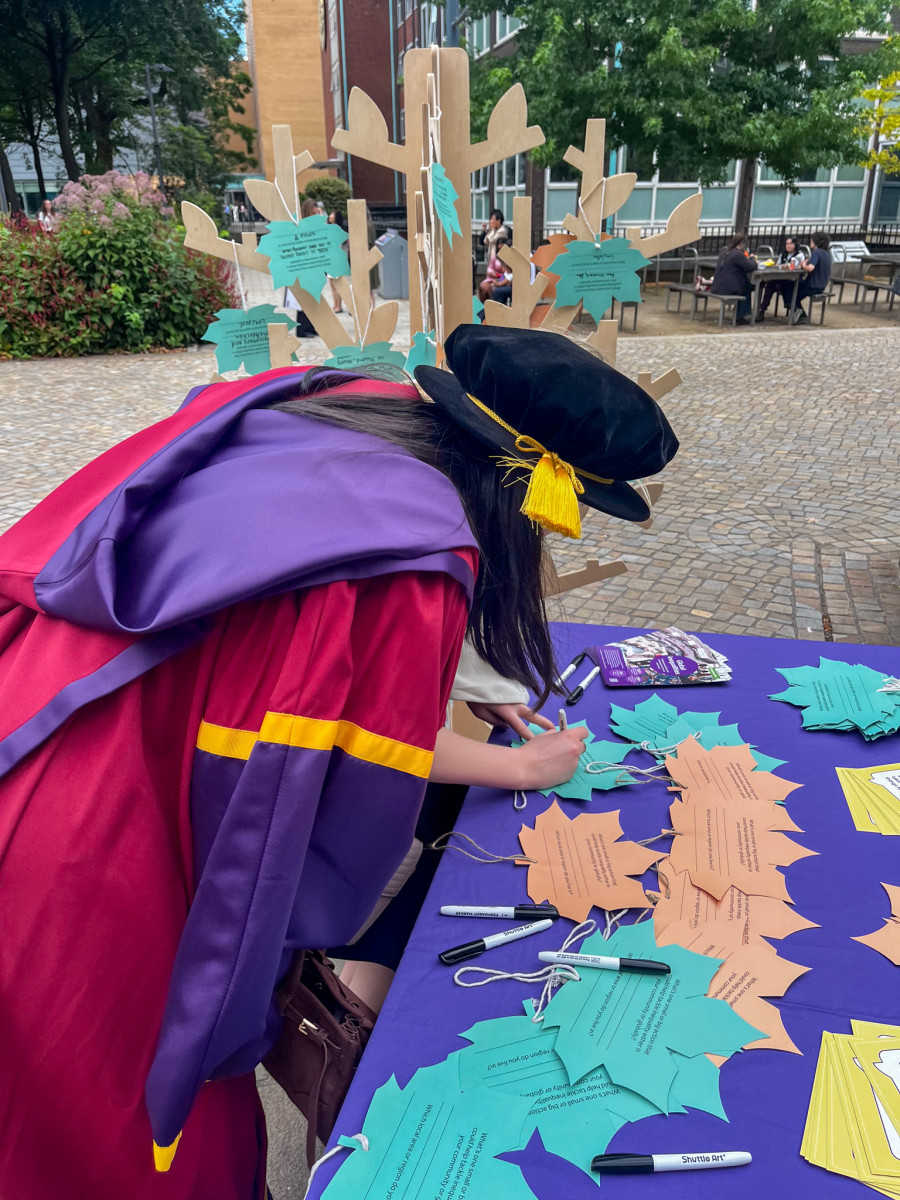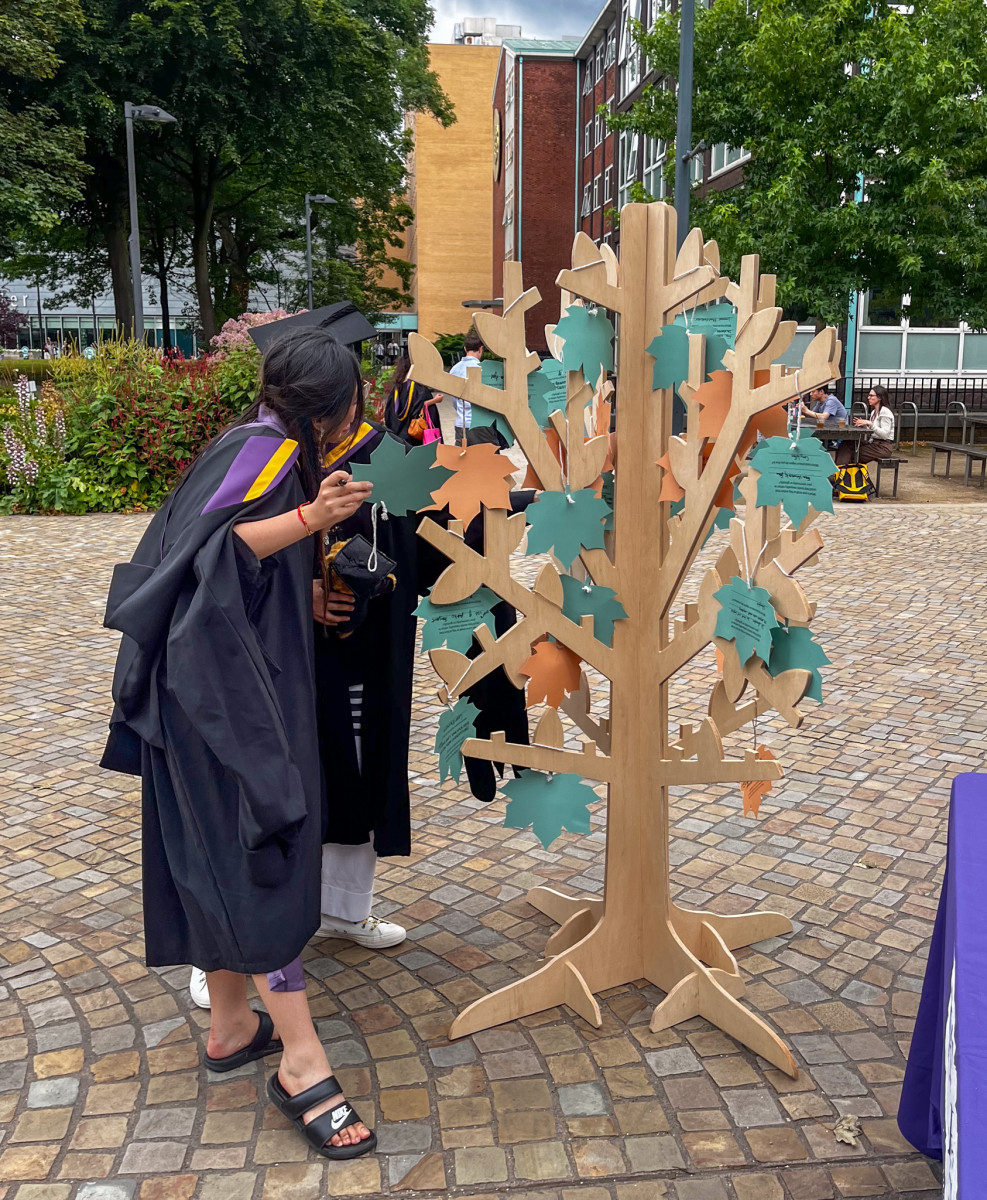Humanities graduates lead the conversation on global inequalities
The University of 99�þþ�Ʒ celebrated . As they crossed the stage to receive their degrees, many did so not only in recognition of academic achievement but as a step forward in their journey as advocates for a more just, inclusive, and sustainable world.
The ceremonies highlighted how many graduates see their studies as a foundation for action. This year’s cohort, particularly from disciplines such as , , , , and , echoed the mission of the university’s global inequalities research beacon, a major initiative working to tackle injustices locally and globally.

Graduates expressed their aspirations through messages inspired by the beacon’s Wishing Tree activity, which invited participants to write down one action that could help build a fairer society. Wishes included calls to stop racism and islamophobia, equality for all people, and making sure that all children have access to free school meals and proper academic support.
One standout idea called for dedicated library sessions to support adult literacy, highlighting education as a tool for empowerment. Across the graduates’ messages, education emerged as a dominant theme, closely followed by concerns around humanitarian issues and the future of democracy.

The global inequalities research beacon, one of the university’s five flagship research areas, plays a vital role in addressing some of the world’s most pressing issues, from poverty and housing injustice to climate resilience and workplace equality. Its researchers work with communities, policymakers, and international partners to advance the , particularly .
At the heart of the beacon’s work is collaboration, not only with experts, but also with the very people affected by inequality. This approach aligns closely with the values expressed by this year’s humanities graduates, many of whom have been directly involved in research projects, public engagement initiatives, or community-based placements.
These ideas will continue to inform the beacon’s future research priorities. As part of its mission, the global inequalities team is committed to amplifying young people’s voices in shaping the policies and wellbeing systems that define the future.